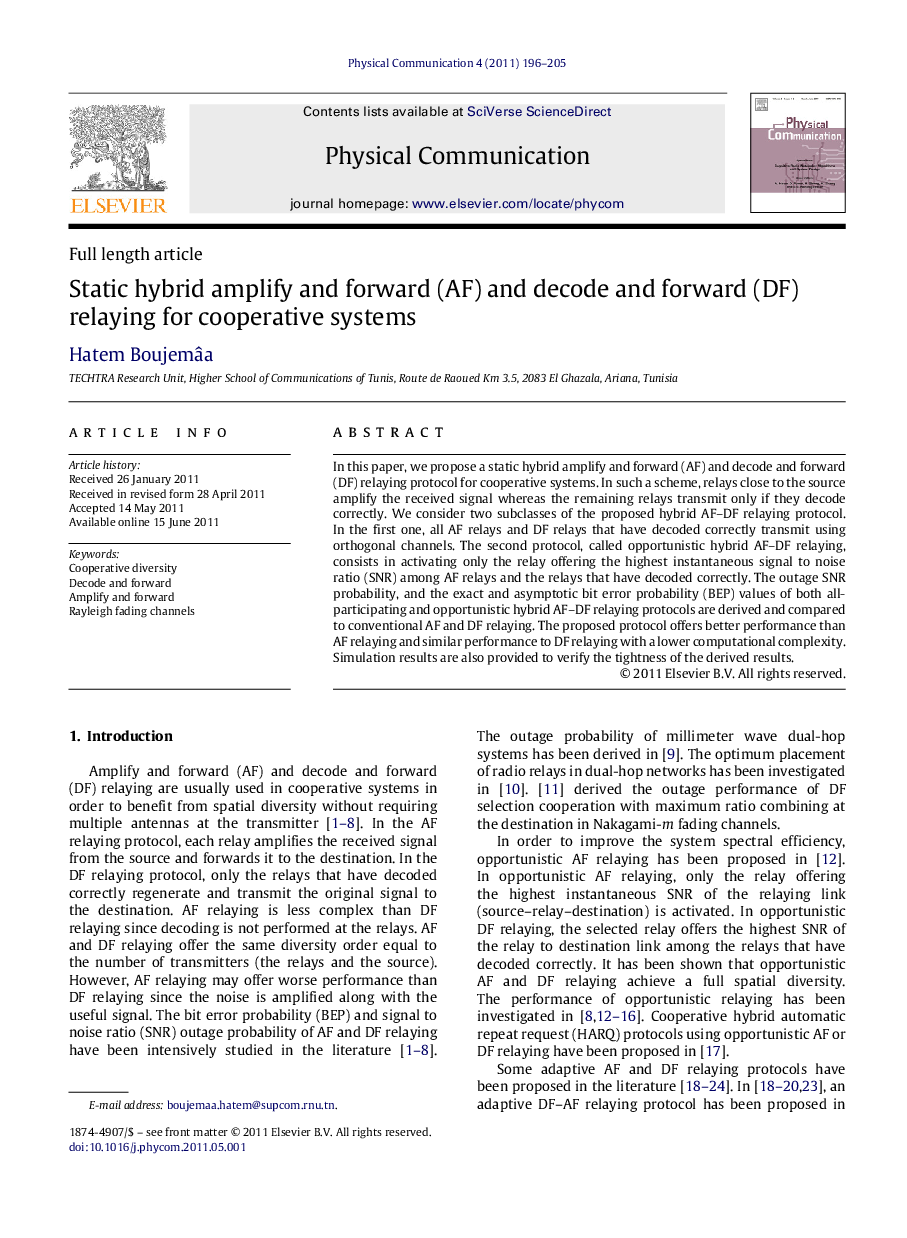| Article ID | Journal | Published Year | Pages | File Type |
|---|---|---|---|---|
| 465178 | Physical Communication | 2011 | 10 Pages |
In this paper, we propose a static hybrid amplify and forward (AF) and decode and forward (DF) relaying protocol for cooperative systems. In such a scheme, relays close to the source amplify the received signal whereas the remaining relays transmit only if they decode correctly. We consider two subclasses of the proposed hybrid AF–DF relaying protocol. In the first one, all AF relays and DF relays that have decoded correctly transmit using orthogonal channels. The second protocol, called opportunistic hybrid AF–DF relaying, consists in activating only the relay offering the highest instantaneous signal to noise ratio (SNR) among AF relays and the relays that have decoded correctly. The outage SNR probability, and the exact and asymptotic bit error probability (BEP) values of both all-participating and opportunistic hybrid AF–DF relaying protocols are derived and compared to conventional AF and DF relaying. The proposed protocol offers better performance than AF relaying and similar performance to DF relaying with a lower computational complexity. Simulation results are also provided to verify the tightness of the derived results.
► A static hybrid amplify and forward (AF) and decode and forward (DF) relaying protocol is proposed. ► Relays close to the source amplify the signal whereas the remaining ones use DF. ► Both all-participating and opportunistic relaying are proposed. ► The proposed protocol reduces transmission delays and power consumption.
